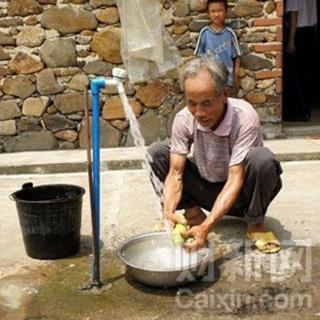
介绍:
Over 100 billion yuan has been spent over the past 10 years on water quality projects in in rural areas, but cleanup efforts have made still little headway. In 2014, a survey by the China Institute of Water Resources and Hydropower Research found that only 38 percent of people living in rural areas had access to clean tap water.
For decades, waterways up and down China have been a dumping ground for industrial waste. The array of toxic wastes discharged has since degraded drinking water quality, particularly in rural areas where water processing networks have failed to keep up with demand, and its effects on human health have been heavily documented. In 2013, a study by the Chinese Center for Disease Control found that many villages along the Huai River reported high rates of cancer due to drinking water contamination from industrial pollution.
Back in 2005, the water ministry, the National Development and Reform Commission and the former Ministry of Health found that at least one-third of the rural population was exposed to unsafe supplies. The study became a cornerstone of efforts which, in the same year, saw the central government issuing a plan to address rural drinking water quality.
Around 110 billion yuan was spent on rural tap water projects from 2006 to 2011 and another 170 billion yuan was set aside for water treatment facilities between 2011 and 2015, according to government figures.
Central government ministries convened a meeting on January 29 to evaluate water quality policies. Water resources minister Chen Lei said on January 29 that the government should establish financing and investment support to promote the water purification industry, as part of wider efforts to meet official goals put into place.
Jiang Wenlai, a researcher of rural development matters at the Chinese Academy of Agricultural Sciences said a key problem regarding rural water supplies remains the lack of water processing facilities in these areas.
On this issue, experts cite a lack of local government funding stemming from tariff policies. Seven of 10 provinces surveyed set tariffs lower than production costs, according to one member of the Chinese People's Political Consultative Conference. Many local governments are unable to afford management fees for water companies.
Other experts point to a lack of funding for even testing water quality. A 2012 report by the State Council found that rural governments cannot afford the 106 tests required for drinking water supplies.
Chen said a major task for this year will be to set up regional testing centers for rural areas.
For Caixin Online, this is Diana Bates.
大家还在听

